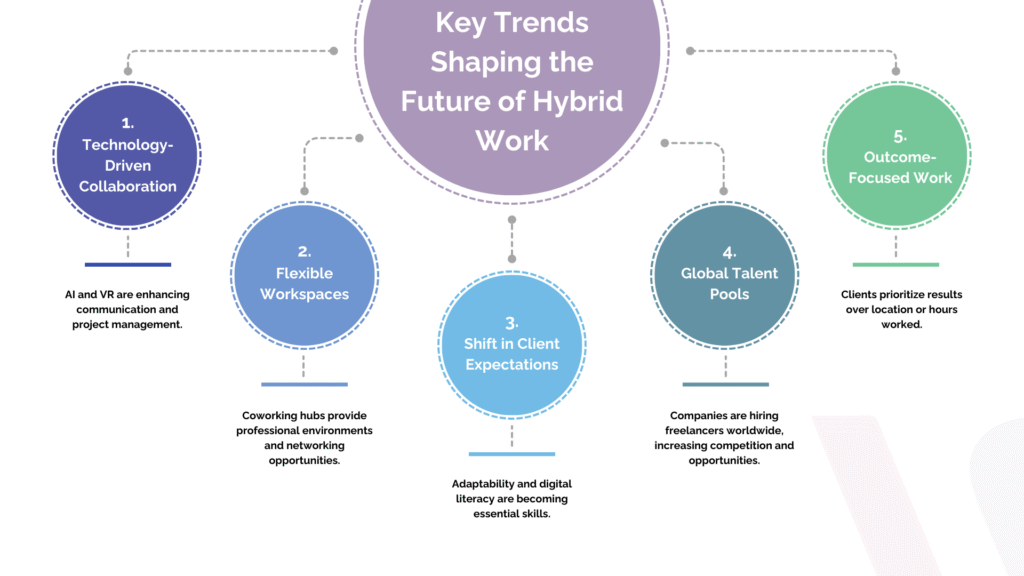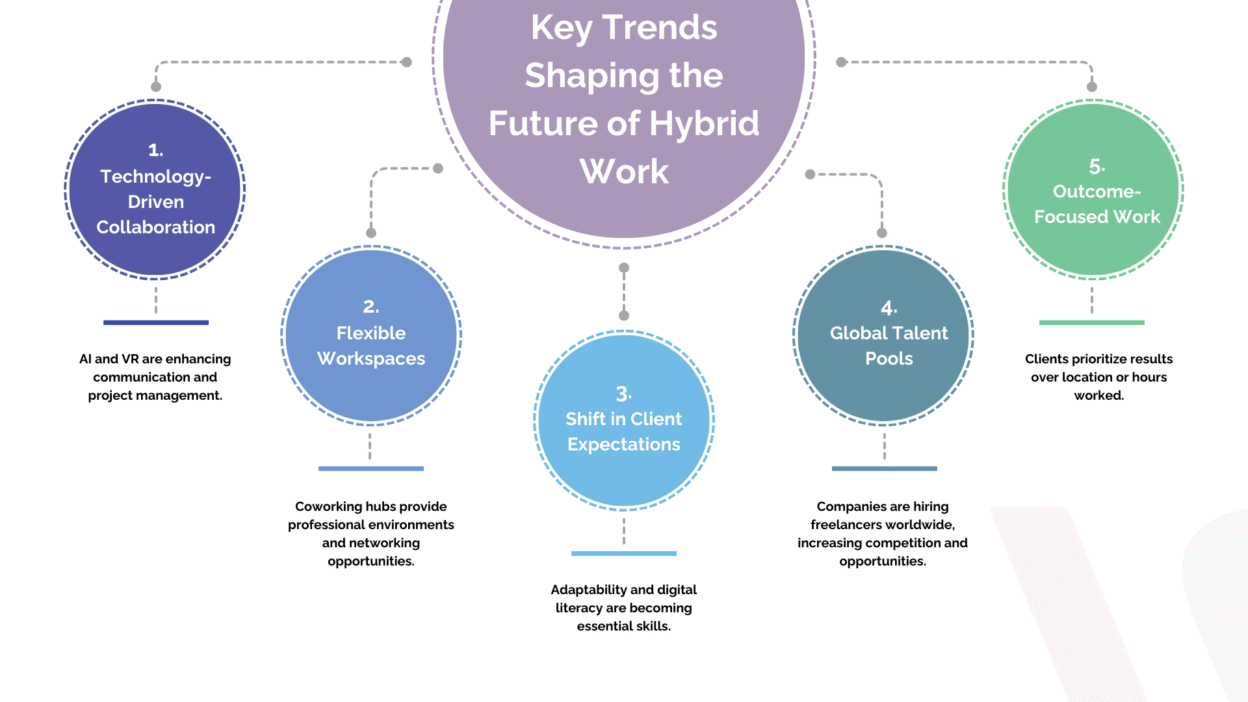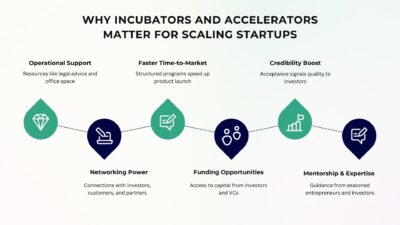Remote work is no longer just a trend—it’s become a permanent fixture in how businesses and freelancers operate. The pandemic accelerated a shift that was already in motion, forcing companies and independent professionals to rethink how work gets done. Now, as we move into 2025 and beyond, hybrid business structures are taking center stage.
For freelancers and freelance company owners, this new model offers both exciting opportunities and unique challenges. Understanding how hybrid work will evolve—and how you can adapt—will be essential for staying competitive, building strong client relationships, and maintaining flexibility in your business.
In this article, we’ll explore the future of remote work through the lens of hybrid structures, looking at what they mean, how they’re shaping industries, and how freelancers can thrive in this new landscape.
What Are Hybrid Business Structures?
Hybrid business structures combine the best of both worlds: the flexibility of remote work with the collaboration benefits of in-person interaction. Instead of choosing between fully remote or fully office-based models, hybrid structures give professionals and companies more options to decide where and how they work.
For freelancers, this could mean:
- Client flexibility: Some projects may involve in-person meetings, while others are fully remote.
- Shared coworking: Many freelancers are leveraging coworking spaces to maintain productivity and networking opportunities.
- Collaborative tools: The use of platforms like Slack, Zoom, Asana, and Notion ensures seamless integration with client teams.
Essentially, hybrid work is about designing workflows that maximize efficiency while respecting personal flexibility.
Why Hybrid Work Matters for Freelancers
Freelancers have always valued freedom—the ability to choose projects, set schedules, and decide where to work. Hybrid models take this freedom a step further by creating a structured yet flexible framework.
Here’s why hybrid structures are particularly relevant for freelancers and freelance company owners:
1. Greater Access to Clients
Freelancers are no longer limited by geography. A hybrid setup means you can collaborate with local clients in person while maintaining global contracts remotely. This expands your portfolio and client base.
2. Improved Work-Life Balance
Working fully remote can sometimes feel isolating, while in-office work often limits flexibility. Hybrid models allow you to strike the balance that works best for your lifestyle.
3. Professional Growth Opportunities
Freelancers benefit from hybrid environments because they encourage more networking, skill-sharing, and collaboration. Attending in-person strategy sessions or workshops enhances credibility and strengthens relationships with clients.
4. Stability in an Evolving Market
The future of work is unpredictable, but hybrid structures provide resilience. Freelancers who adapt now will be better prepared for industry shifts.
Key Trends Shaping the Future of Hybrid Work

The rise of hybrid business structures isn’t just about where people work—it’s about how technology, culture, and economics are reshaping the workforce. Below are the major trends influencing freelancers in 2025 and beyond.
1. Technology-Driven Collaboration
AI-powered tools are streamlining communication, project management, and client onboarding. Virtual reality (VR) and augmented reality (AR) are also emerging in creative industries, making hybrid collaboration feel more personal.
2. Global Talent Pools
Companies are hiring freelancers worldwide, and hybrid structures support this shift. For freelancers, this means increased competition but also more opportunities in industries that embrace cross-border collaboration.
3. Flexible Workspaces
Coworking hubs are thriving. They provide freelancers with a professional environment, meeting rooms, and networking events—all essential for hybrid models. Expect to see growth in niche coworking spaces tailored to industries like design, video editing, and consulting.
4. Outcome-Focused Work
Clients care less about where work gets done and more about results. This trend empowers freelancers to prove their value through deliverables, not location or hours worked.
5. Shift in Client Expectations
Businesses want freelancers who can integrate seamlessly into hybrid teams. Skills like adaptability, communication, and digital literacy are becoming just as important as technical expertise.
How Freelancers Can Adapt to Hybrid Business Models
To succeed in a hybrid future, freelancers need to go beyond simply offering services. They must align with client expectations, embrace new technologies, and position themselves as reliable partners. Here’s how:
1. Invest in Tools and Infrastructure
- Use project management software like Trello, Notion, or ClickUp to align with client workflows.
- Upgrade your home office with reliable internet, ergonomic setups, and video conferencing equipment.
- Explore coworking memberships to balance remote and in-person work.
2. Enhance Communication Skills
Hybrid work demands clarity. Whether you’re emailing a client, presenting via Zoom, or attending a workshop, being articulate and responsive sets you apart.
3. Offer Flexible Packages
Instead of rigid contracts, consider offering hybrid service packages—for example, a retainer that includes a mix of virtual collaboration and on-site visits.
4. Prioritize Continuous Learning
Stay updated on hybrid-friendly tools and industry shifts. Online courses, webinars, and professional communities can keep your skills sharp.
5. Build Stronger Client Relationships
Trust is critical in hybrid models. Check in regularly, deliver on time, and demonstrate flexibility to adapt to your clients’ preferred way of working.
Benefits of Hybrid Business Structures for Freelance Companies
For freelance company owners managing small teams, hybrid models bring even more advantages:
- Scalability: You can build a team across different regions without investing heavily in physical offices.
- Talent Diversity: A hybrid setup allows you to hire specialists globally, enriching your company’s service offerings.
- Client Retention: Offering hybrid collaboration reassures clients that your team can integrate smoothly with theirs.
- Cost Efficiency: Reduced need for permanent office space while still having access to coworking hubs when needed.
By combining global talent with flexible operations, freelance companies can position themselves as future-ready.
Challenges to Watch Out For
Of course, hybrid work isn’t without its challenges. Being aware of potential pitfalls will help freelancers and business owners prepare better.
- Boundary Management: Balancing personal and professional time can be harder in hybrid setups.
- Overcommunication vs. Miscommunication: Too many meetings waste time, too few create confusion. Finding balance is key.
- Technology Dependence: Internet outages or tool overload can disrupt workflows. Backup plans are essential.
- Competition: The global freelance market is getting more competitive. Standing out requires specialization and personal branding.
Practical Tips for Thriving in the Hybrid Future
- Specialize: Niche expertise makes you more attractive in a crowded market.
- Network Actively: Attend hybrid events—both virtual and physical—to grow your professional circle.
- Embrace Personal Branding: Use LinkedIn, personal websites, and content creation to showcase your expertise.
- Focus on Deliverables: Clients value results. Always align your work with measurable outcomes.
- Stay Flexible: Hybrid models will evolve, so adaptability is your strongest asset.
Looking Ahead: The Future of Remote Work
The future of remote work is hybrid—not because it’s a compromise, but because it’s the most effective way to merge flexibility, productivity, and collaboration. For freelancers and freelance company owners, this means more opportunities to build meaningful careers without sacrificing independence.
By investing in the right tools, honing communication skills, and staying adaptable, you can position yourself at the forefront of this new era. Hybrid work isn’t just a business structure—it’s a mindset shift that rewards those who are proactive, skilled, and ready to embrace change.
Final Thoughts
Remote work changed how we live, and hybrid work is reshaping how we connect. Freelancers who embrace hybrid structures will find themselves with stronger client relationships, broader opportunities, and more sustainable businesses.
The future belongs to those who can balance independence with collaboration—and hybrid business models are the bridge that makes it possible.



